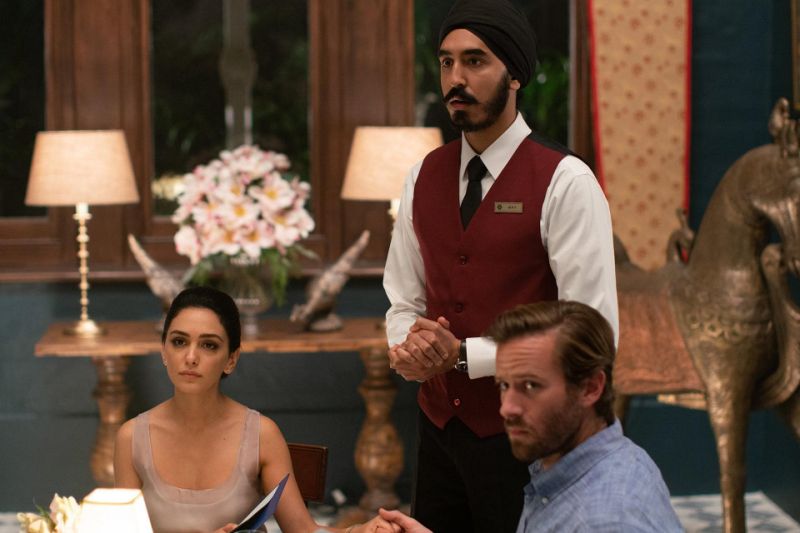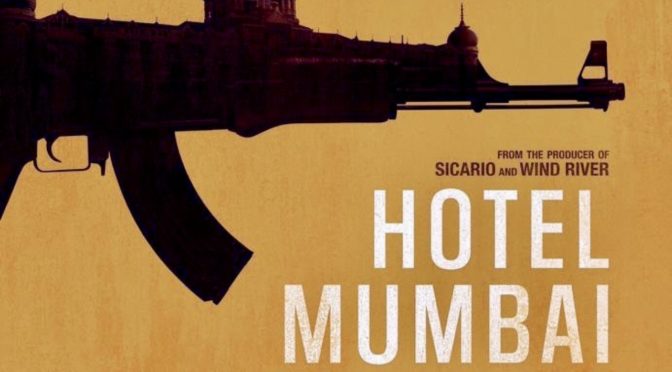Based on the 2008 terrorist attacks in India, Hotal Mumbai follows several characters in the historic Taj Mahal Palace Hotel, a five-star, hundred year old lodging. Dev Patel (Slumdog Millionaire) plays a waiter at the Taj who, after almost being sent home for not having the required clothing, finds himself caught in the center of a coordinated assault. Instead of escaping, he and several of the other hotel staff decide to stay to help evacuate the guests to safety, risking their own lives in the process. The film also follows a wealthy heiress (Nazanin Boniadi) and her American husband (Armie Hammer; The Social Network) staying at the hotel and shows the terrorists as they enter Mumbai and execute their plan.
Patel delivers mixed results as the lead but has a strong supporting cast to compensate. Patel’s blank face isn’t able to express the necessary gravity of the situation. Even in the tensest moments, he just seems vaguely confused and his expressions wouldn’t be out of place in a comedy. Fortunately, the cast that plays the rest of the Taj’s staff is up to the task. They appear determined and methodical, operating in the same well-structured unit they use for regular business, only with significantly higher stakes. Anupam Kher (The Big Sick) is stern but caring as the head chef and manager. He repeatedly shows his resourcefulness and resilience and he leads the frantic guests through significant danger and calmly confronts the daunting risks ahead. The remaining cast is hit or miss with Armie Hammer and Jason Isaacs delivering mostly flat acting and the others having too little screen time to be memorable.

Despite this being his first feature, director Anthony Maras shows he has an eye for tension. He stages the horrific acts with a harsh, unstylized brutality that never veers into exploitation. The violence elicits shudders not cheers. His greatest asset is his ability to capture the terror of the unknown. Much of the film consists of characters hiding in the dark, afraid that the terrorists may enter their room. Maras maintains a breathless tension in these scenes by making use of offscreen space. We hear the knocks on guest rooms followed by screams and gunshots and, like with the shaking water cups from Jurassic Park, we know something bad is coming.
Hotel Mumbai’s major flaw is its message, or rather, its lack thereof. Many films have taken real life events and turned them into dramas, but Maras’s picture doesn’t appear to offer any particular insight. He partially avoids the mistake of taking a tragedy and focusing on a few visiting Americans instead of the locals who suffered in greater numbers. Thankfully, the hotel’s team is shown as the heroic people that they were, but the film doesn’t delve into the lives of the staff either. The characters and any greater context into the events that led to these incidents are secondary to the illustrating the momentary actions and emotions. Hotel Mumbai is an incredibly effective, visceral depiction of what it could have been like to endure this act of terror, but lacks a deeper meaning behind the recreation.

4/5 stars.
